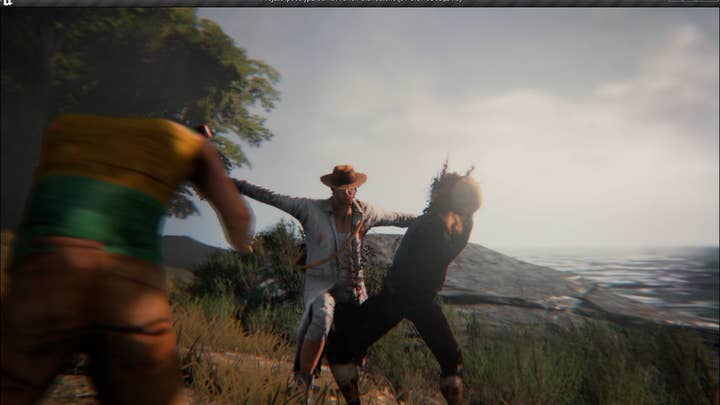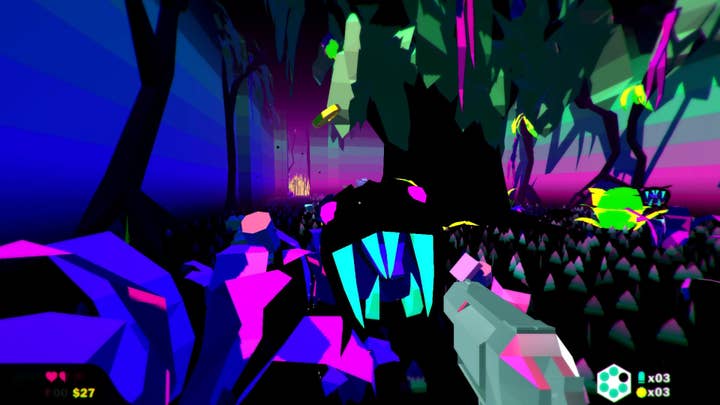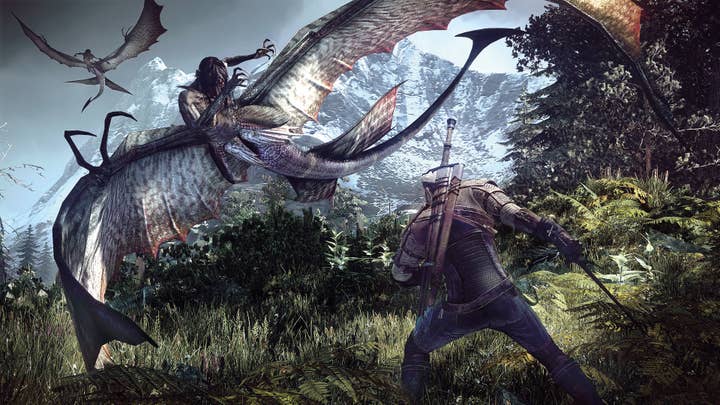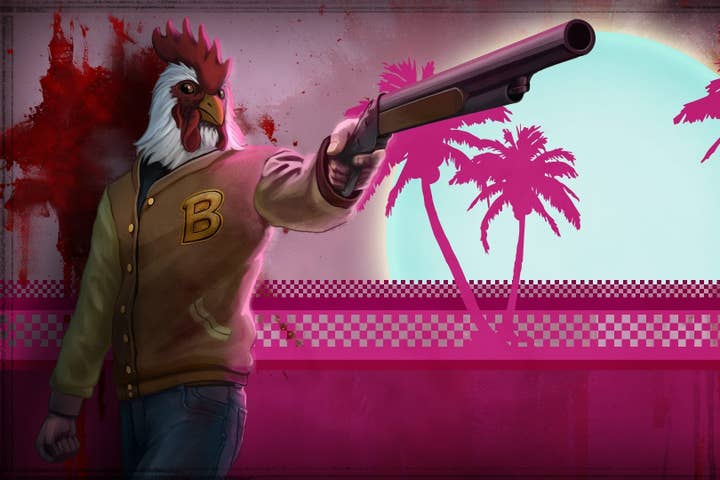Hotline São Paulo: Meet the indies taking aim at Brazil
CD Projekt, Devolver Digital and The Game Wall are reaching out to gamers that consoles can't reach
For many independent developers, skilful navigation of Steam Greenlight is necessary to have any reasonable chance at success. There are games on today's market of every shape, size and cost, more than the addressable audience could possibly reward. In that context, all developers can do is identify their strengths and play to them, because even the smallest mistake can prove costly.
With PaZ: Project Apocalipz, The Game Wall made a mistake. The Cambridge-based indie publisher was handling the first game from a fledgling studio, and so it made the quite reasonable decision to target as wide an audience as possible. The fact that PaZ's developer, Indieos, was based in Sao Paulo didn't seem relevant to its chances of being approved by the Greenlight community, so the game was submitted with its description and all of its marketing materials in English.
"Unless it's a huge game like FIFA, if it's not in Portuguese they won't play it"
Eduardo Monteiro, The Game Wall
The feedback began rolling in almost immediately, and there was one concern that towered above all others: Given that PaZ was made in Brazil, why had The Game Wall opted to speak the wrong language?
"Even when they could read English they still wanted to know why the description wasn't in Portuguese," says Eduardo Monteiro, The Game Wall's founder, shaking his head in amusement. "That's their flag. This is a small example, but it shows how gamers in Brazil think. Unless it's a huge game like Call of Duty or League of Legends or FIFA, if it's not in Portuguese they won't play it."
That uncertain start on Greenlight demonstrated just how powerful Brazilian national pride could be in finding an audience for PaZ, which was approved within 48 hours of its Greenlight page being translated into Portuguese. That's why Monteiro is at the Brazil Game Show, an event dominated by gargantuan stands for PlayStation, Xbox and the usual roll-call of mega-franchises. Even amongst the giants, this is the best place for PaZ and Indieos to find their future.

"This market is very difficult to penetrate if you come from outside, but Brazilians are very passionate about anything that involves their culture and their country," he says. "We can say that we're going to release a game made by people in Brazil, and we're going to compete with the biggest names in the industry. If it was a developer from Europe we would have maybe 5 per cent of the support, but because it's a Brazilian game everyone said they liked it. Even if it wasn't the genre of game they normally play, they still said they would buy it."
"We're here to help people understand that Brazil isn't isolated. It isn't some windless doldrums in the middle of nowhere"
Andrew Parsons, Devolver Digital
On some level, the fact that Activision localises Call of Duty for Brazilian gamers is entirely unremarkable. For the majority of exhibitors at the Brazil Game Show, this is just one of many new markets they are seeking to develop - another name on a very long list. A company like The Game Wall, however, is working at a scale that demands a more pragmatic attitude when it comes to marketing and selling a given product. Activision wants to sell its games everywhere. The Game Wall needs to know exactly who wants PaZ, and where to find them.
The same is true of Devolver Digital, a rising force in the indie development scene, and an exhibitor at the Brazil Game Show for the second year running. Devolver's booth features playable versions of Hotline Miami 2, Broforce and Heavy Bullets, a game from the Brazilian independent developer Terri Vellmann. Like Monteiro, Devolver's Andrew Parsons has seen first-hand how a 'hometown boy' story can translate into commercial appeal, but he believes that the opportunity in Brazil is far broader than just AAA franchises and games made by local talent.
"There are plenty of people that can't afford to buy a console because they're so expensive," Parsons says. "But the price of a PlayStation 4 can get them a massive Steam library and a decent PC, at more or less sensible prices."
That's a very important observation. The new generation of consoles - and particularly the PlayStation 4 - are far more expensive in Brazil than in more established markets like North America and the UK, and that's before you consider the huge disparity in annual household income. For the majority of people in Brazil, a dedicated gaming system is a much more difficult investment to justify than a multi-purpose PC, and the fact that PC games tend to have more flexible and varied pricing only reinforces that dynamic.

The games released by companies like Devolver are more affordable for the average Brazilian than, say, a console copy of Destiny, and yet precious few developers have an understanding of the grassroots enthusiasm for indie games that exists here. In terms of sales, Parsons says, Brazil is a top-ten country for many of Devolver's games, and a top-five country for a select few. There is a nascent market here for indies, one that has been growing rapidly ever since Valve made the Brazilian Real an official currency on Steam.
"Steam is useful for that," Parsons says. "For whatever reason this territory and these people are important to us. We might not even know what that reason is, but they like what we're doing. So let's work harder on localisation. Let's localise our tweets so we can talk directly to them.
"The Witcher 3 will be the first big, fully localised RPG. That's a huge advantage"
Marcin Iwiński, CD Projekt
"Now that Steam has a foothold here, why wouldn't you? Devolver isn't necessarily here to fire out units at people. Really, we're here to help people understand that Brazil isn't isolated. It isn't some windless doldrums in the middle of nowhere. I'm sure there are more territories that we're short-changing just because we're not paying enough attention."
Devolver released fully localised Brazilian versions of both Shadow Warrior and Gods Will Be Watching. According to Parsons, the very fact that games of this kind were being so carefully prepared for Brazil was greeted with a mix of sincere gratitude and incredulous surprise. Devolver takes its fans very seriously, wherever they happen to be. After speaking to Parsons, I leave with the impression that he considers thorough and considered localisation a responsibility, not a luxury.
"Fans are the only thing that matters to any game. Look after them. Speak to them in their language. That's not some evil, corporate way of doing things. It's treating people like human beings. 'Everyone else can have this but you can't because you're not from the same country as them.' I can't speak for the other companies here, but that's become a huge part of our lives now."
Of all the non-Brazilian companies at BGS, not a single one seems more engaged with preparing a product for the local market than CD Projekt. For its highly anticipated new game, The Witcher 3, the Polish developer is making what its co-founder and CEO Marcin Iwiński describes as, "a quite unprecedented move."
"We're fully localising The Witcher 3 to Portuguese," he says, grinning. "Full voice-over: 300-hours of audio recordings with 81 actors."
A pause. "That's Brazilian Portuguese."

It is difficult to quantify effort, but it seems likely that no independently released game has ever had quite so much effort lavished upon it for the benefit of Brazilian gamers. In part, Iwiński says, it's a matter of recognising and respecting the level of English language comprehension in the country - Brazil is currently ranked 38th out of 60 countries on the English Proficiency Index - but it also resonates on a personal level. After all, it wasn't so long ago that gamers in Poland felt just as isolated as those in Brazil.
"I have it in my blood," Iwiński says. "I come from a country that didn't have localised games. We were the first company to do fully localised versions. Brazil has a huge population, and it's only when you come here that you realise how much they don't speak English. It's a shocker.
"I remember when we did the first full localisations in Poland, and how much that opened up the market"
Marcin Iwiński, CD Projekt
"But it's also an opportunity, because a lot of companies continue to underestimate that, and we'll be the first big, fully localised RPG. That's a huge advantage. I can still remember when we did the first full localisations in Poland, and how much that opened up the market. I'm fluent in English, but when I play The Witcher I still play it in Polish. Because then I get the meaning and the feeling of every single word."
Brazilian gamers will be among the select few to get that experience with The Witcher 3. According to Iwiński, the game will be released in 14 different languages, but Brazil is one of just five to receive the full VO treatment. It is a statement of intent from CD Projekt, and the sort of step Iwiński expects to see many other companies taking in the near future.
"The market is how you shape it," he says. "With The Witcher 3, it was time to go local. We did full market research and we realised, wow, it's really developing. Digital distribution has been picking up while we've been looking the last two years, and with that this market will grow fast.
"If you look at the sort of deals that people are doing, very often companies who don't self-publish - as we do - they make 'rest-of-the-world' kind of deals. They give it to someone who brings a certain number of units, and they're sold or they're not. That's over with. Brazil is a booming market, if you do it right, with the right product."

